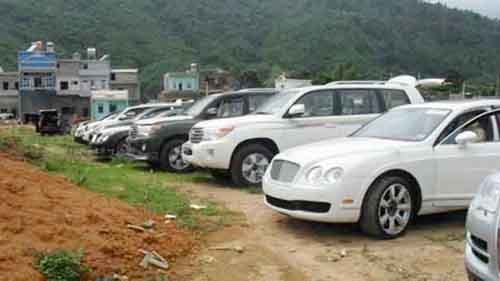New decision on temporary import - re-export
The decision sets the maximum temporary import period for each shipment to no more than 60 days (including one 15-day extension).
Following the instability in the business of temporary import - re-export (TN-TX) goods, the Ministry of Industry and Trade has just issued Decision 5737/QD-BCT announcing 3 appendices of the list of goods prohibited from TN-TX, transit and bonded warehouse business, temporarily suspended or requiring a license from this Ministry.
The decision sets the maximum temporary import period for each shipment to be no more than 60 days (including one 15-day extension). If the above period is exceeded and the goods are not re-exported from Vietnam, they are automatically considered contraband. This is what forces enterprises specializing in temporary import to self-adjust, persist or dissolve if they do not meet the requirements.
Looking back at the overall picture, most businesses currently doing business in TN-TX, transshipment, and bonded warehouses only participate in the stage of providing consignment services to receive commissions while the real legal owners are all abroad. They are called “representatives” in the import and export of goods, but our businesses do not know what the actual shipment is. Furthermore, the Vietnamese Maritime Law and international customs are based on the type of means of transport (import, transshipment, TN-TX) but only show the goods going from port A to port B and the name of the goods.

Temporary import and re-export car yard in Quang Ninh.
According to Hai Phong Customs, this is a loophole that makes it difficult for even the border customs to accurately count how many TN-TX goods there are and what items they are, unless the business comes to open a declaration. Difficulties in management and the total amount of import-export goods currently stored in the complex port area arise from this. "Temporary import" is already complicated, "re-export" is even more difficult. Because most of the border gates currently have small infrastructure, do not meet standards, and are always under great pressure on the speed of goods clearance. Thus, a TN-TX shipment in operation without anyone knowing exactly what the goods are is itself an opportunity for international smugglers to use our ports, border gates, and transportation systems to do illegal business.
However, with the new regulations mentioned above, everything is quite clear, in the direction of limiting risks, creating conditions and forcing businesses to improve their knowledge, gradually moving from being employees to being owners or at least knowing clearly whether the goods being traded are allowed or not before signing contracts with foreign countries. It is known that in the appendix page there are also vehicles (except equipment running on railways or trams) and their parts and accessories... In other words, they are used cars and motorbikes. With this new regulation, the fate of dozens of super luxury cars that have been waiting at the border gates of Binh Lieu, Hoanh Mo, Quang Ninh province for a long time but still cannot be re-exported, will certainly be confiscated because the temporary import period has expired.
In recent days, the TN-TX industry has mostly “expressed concern” because there are currently tens of thousands of TN-TX containers stuck in Quang Ninh and Hai Phong. However, the General Department of Customs has taken steps to resolve the issue by issuing Document 5296/TCHQ-GSQL (October 3) allowing changes to the re-export border gate. However, this is still only a temporary measure. In the long term, businesses need to carefully study Decision 5737/QD-BCT if they want to participate in the TN-TX sector to avoid a repeat of the situation of rushing to import goods, rushing to run procedures, and then being stuck in a series of jams like recently./.
(According to vov.vn)-LT






